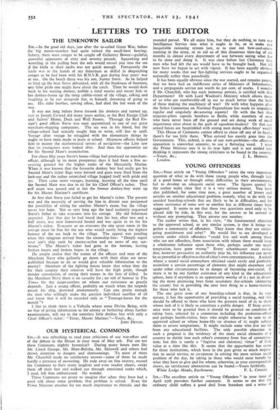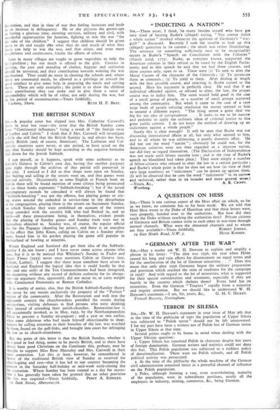Sut,—The excellent article on "Young Offenders" in your issue of
April 25th provokes further comment. It seems to me that the ordinary child suffers a good deal from boredom and a sense of frustration, and that in time of war that feeling increases and leads w an increase in delinquency. He or she pictures the grown-ups 3s having a glorious time, entering services, military and civil, with wonderful opportunities for heroism, fighting to win the war "for the sake of the children." I suggest that children should be given more to do and taught tIrtat what they do and much of what they learn -can help to win the war, and that crime, and even mere
ughtiness and carelessness, hinder the efforts of others.
Iloys in many villages are taught to grow vegetables to help the
J-problem ; but not much is offered to the girls. Courses in ,oking, the care and mending of clothes, hygiene and sanitation should be universal, and their contribution towards winning the war Lmphasised. They could do more in cleaning the schools and, where there are communal meals, be allowed as a privilege or reward for good conduct to give some help in preparing the meals and serving them. These are only examples ; the point is to show the children what contribution they can make and to give them a sense of responsibility which will be of value, not only during the war, but hi the period of reconstruction.—Yours faithfully,































 Previous page
Previous page